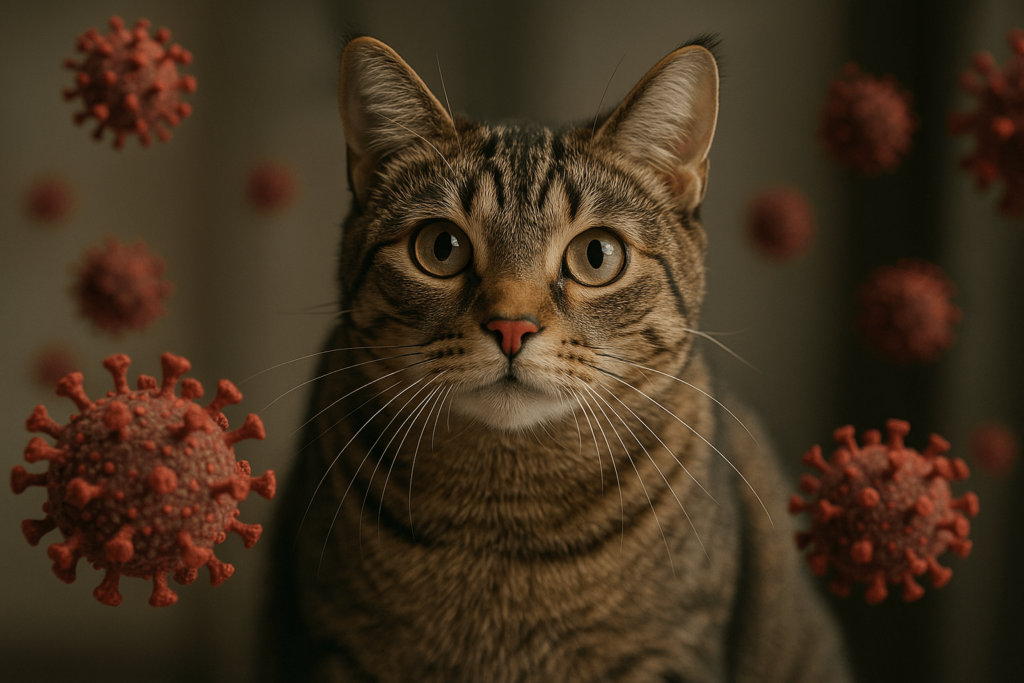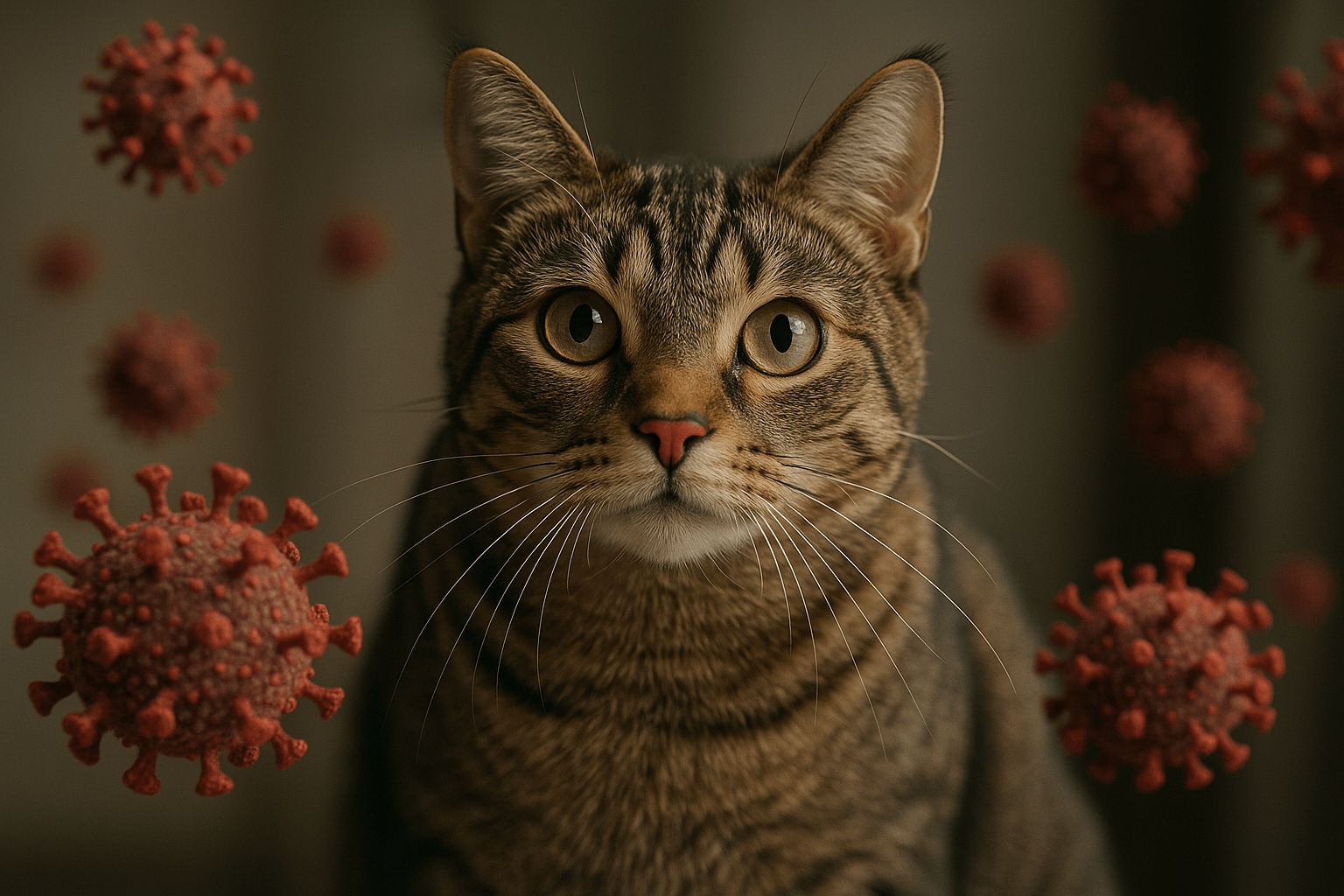Can Cats Get COVID? Understanding the Facts
The emergence of the COVID-19 pandemic raised countless questions about how the virus affects not only humans but also our beloved pets. Many cat owners have wondered whether their feline companions are susceptible to the virus and what precautions they should take. While research has shown that cats can contract certain variants of the virus, it’s essential to separate fact from fiction and understand the risks involved. This blog post dives into the science behind COVID in cats, offering clarity on how to keep your furry friend safe during uncertain times.
What Science Says About Cats and COVID-19
Scientific studies have provided valuable insights into how the SARS-CoV-2 virus interacts with animals, including cats. Here’s a breakdown of what researchers have discovered so far.
Cats Can Contract the Virus:
Laboratory studies have confirmed that cats can become infected with SARS-CoV-2 under experimental conditions, though natural infections are rare.Transmission Between Cats is Possible:
Infected cats may transmit the virus to other cats in close quarters, but this doesn’t appear to happen frequently in real-world settings.Mild Symptoms Are Common:
Most cats who contract the virus experience mild symptoms such as sneezing, coughing, or lethargy, while some remain completely asymptomatic.Human-to-Cat Transmission Occurs:
There have been documented cases of humans transmitting the virus to their pets, particularly in households with prolonged close contact.No Evidence of Cat-to-Human Spread:
Despite fears, there is currently no evidence suggesting cats can pass the virus back to humans, providing reassurance for pet owners.
Understanding these findings helps dispel myths and highlights the importance of responsible pet care during outbreaks.

How to Protect Your Cat During the Pandemic
Taking proactive steps to safeguard your cat’s health is crucial, especially if someone in your household tests positive for COVID-19. These measures can minimize risks without causing undue stress.
Limit Close Contact If You’re Sick:
Avoid cuddling, kissing, or sharing food with your cat if you’ve been diagnosed with or suspect you have COVID-19.Wear a Mask Around Your Pet:
Wearing a mask reduces the likelihood of respiratory droplets reaching your cat during interactions.Practice Good Hygiene:
Wash your hands thoroughly before and after handling your cat, their food, or their belongings.Designate a Caregiver:
If possible, ask another family member to care for your cat temporarily while you recover to reduce exposure.Monitor Your Cat for Symptoms:
Keep an eye out for signs of illness, such as nasal discharge, difficulty breathing, or unusual fatigue, and consult a veterinarian if needed.
By following these guidelines, you can ensure your cat stays healthy even during challenging times.
Check this guide 👉Can Cats Get Norovirus from Humans? Best 7 Health Tips!
Check this guide 👉Cat Reactions to Vaccines: Best 7 Expert Tips!
Check this guide 👉Can I Give My Cat Vaccines Myself? Best 7 Expert Tips!
Precautions for Cats During COVID-19 | Signs Your Cat May Be Infected |
|---|---|
Limit close contact if you’re sick | Sneezing or nasal discharge |
Wear a mask around your pet | Coughing or wheezing |
Wash hands before handling your cat | Lethargy or lack of appetite |
Designate a caregiver if necessary | Fever or unusual warmth |
Monitor for changes in behavior | Difficulty breathing |
Debunking Myths About Cats and COVID-19
Misinformation about pets and COVID-19 has spread almost as quickly as the virus itself. Let’s address some common myths and clarify the facts.
Myth: Cats Are Highly Susceptible to COVID-19:
Fact: While cats can contract the virus, they are less likely to become seriously ill compared to humans.Myth: Cats Can Easily Spread the Virus to Humans:
Fact: There is no scientific evidence supporting cat-to-human transmission of SARS-CoV-2.Myth: All Cats Will Show Symptoms If Infected:
Fact: Many infected cats remain asymptomatic, making it difficult to detect the virus without testing.Myth: Vaccinating Humans Doesn’t Protect Pets:
Fact: Reducing human infections indirectly protects pets by minimizing opportunities for transmission.Myth: It’s Unsafe to Adopt Cats During the Pandemic:
Fact: Shelters follow strict protocols to ensure adopted animals pose no risk to new families.
Clearing up these misconceptions helps alleviate unnecessary fears and promotes informed decision-making.
When to Consult a Veterinarian About Your Cat’s Health
If you suspect your cat may have contracted COVID-19 or is showing unusual symptoms, seeking veterinary guidance is essential. Here’s what to consider before visiting the clinic.
Contact Your Vet First:
Call ahead to discuss your concerns and determine whether an in-person visit is necessary.Describe Symptoms Clearly:
Provide detailed information about any changes in behavior, appetite, or physical condition.Inform About Exposure Risks:
Mention if anyone in your household has tested positive for COVID-19, as this context helps vets assess the situation.Follow Safety Protocols at the Clinic:
Adhere to the clinic’s guidelines, such as wearing a mask or waiting outside until your appointment begins.Ask About Testing Options:
Veterinary labs offer specialized tests for pets suspected of having SARS-CoV-2, though they’re typically reserved for high-risk cases.
Early intervention ensures your cat receives appropriate care while protecting both human and animal health.
How to Recognize Stress in Your Cat
Stress can manifest in subtle ways, especially during uncertain times like a pandemic. Recognizing signs of distress in your cat allows you to address issues promptly and restore their sense of security.
Changes in Eating Habits:
A stressed cat may eat significantly less or more than usual, indicating discomfort or anxiety.Excessive Grooming:
Over-grooming often signals stress, leading to hair loss or skin irritation in severe cases.Hiding More Than Usual:
Cats retreat to quiet spaces when feeling overwhelmed, so increased hiding could be a red flag.Aggression or Irritability:
Uncharacteristic growling, hissing, or swatting may reflect heightened stress levels.Litter Box Issues:
Avoiding the litter box or urinating outside it can signal emotional upset or health problems.
Addressing stress early prevents long-term behavioral or medical complications, ensuring your cat feels safe and supported.
Boosting Your Cat’s Immune System
A strong immune system helps your cat fight off illnesses, including viral infections like COVID-19. These tips promote overall wellness and resilience.
Provide a Balanced Diet:
High-quality nutrition supports immune function and keeps your cat energized and healthy.Ensure Regular Exercise:
Interactive play stimulates both body and mind, reducing stress and boosting immunity.Keep Up with Vaccinations:
Staying current on core vaccines protects against other diseases that weaken the immune system.Minimize Environmental Stressors:
Create a calm, predictable environment free from loud noises or sudden disruptions.Schedule Routine Check-Ups:
Regular vet visits catch potential issues early and ensure ongoing preventive care.
Prioritizing your cat’s health strengthens their defenses against various threats, keeping them vibrant and happy.
Preparing for Future Health Emergencies
Being prepared for unexpected health challenges, including pandemics, ensures you’re ready to act swiftly and effectively. These steps build a safety net for your cat.
Stock Up on Essentials:
Keep extra food, medications, and supplies on hand in case of emergencies or supply chain disruptions.Create a Pet Emergency Plan:
Identify nearby veterinarians, emergency clinics, and pet-friendly accommodations in advance.Update Identification Tags:
Ensure your cat’s ID tags and microchip information are current to facilitate reunions if they ever go missing.Learn Basic First Aid:
Familiarize yourself with basic pet first aid techniques to handle minor injuries or illnesses at home.Stay Informed About Zoonotic Diseases:
Keep up with reliable sources to stay educated about emerging diseases that could affect pets.
Proactive preparation empowers you to face future uncertainties with confidence, safeguarding your cat’s well-being.
Frequently Asked Questions About Cats and COVID-19
Can I give my cat COVID-19?
Yes, but only in rare cases where there’s prolonged close contact between an infected human and their pet.
Should I test my cat for COVID-19?
Testing is usually unnecessary unless recommended by a veterinarian based on specific symptoms or exposure risks.
Do cats need vaccines for COVID-19?
No, there are currently no approved vaccines for pets against SARS-CoV-2.
Is it safe to touch stray cats during the pandemic?
While the risk is low, avoid direct contact with stray animals to prevent potential exposure to germs or viruses.
Can indoor cats get COVID-19?
Indoor cats are at lower risk, but they can still contract the virus if exposed to an infected human or contaminated surfaces.
Keeping Your Cat Safe in a Post-Pandemic World
While the threat of COVID-19 has diminished over time, understanding its impact on our pets remains important. By staying informed and taking simple precautions, you can protect your cat from unnecessary risks without compromising your bond. Remember, the key lies in balancing vigilance with compassion—ensuring both you and your feline companion navigate life confidently and comfortably. Together, we can continue fostering a harmonious relationship built on trust, love, and mutual well-being.
Canned Pumpkin for Cat Diarrhea: Best 7 Expert Tips! Natural remedy to firm stools, soothe upset bellies, and support gut health safely.
Can a Cat Give You Scabies? Best 7 Expert Tips! Discover the truth about feline mites, human skin risks, and how to protect yourself—without panic.
Cat Flea vs Human Flea: Best 7 Expert Tips! Discover the truth about bites, species, and how to eliminate infestations for good.
Weird Cat Behaviors: Best 7 Expert Tips! Discover why cats do strange things—and how to understand, not punish, their instincts for a happier home.





